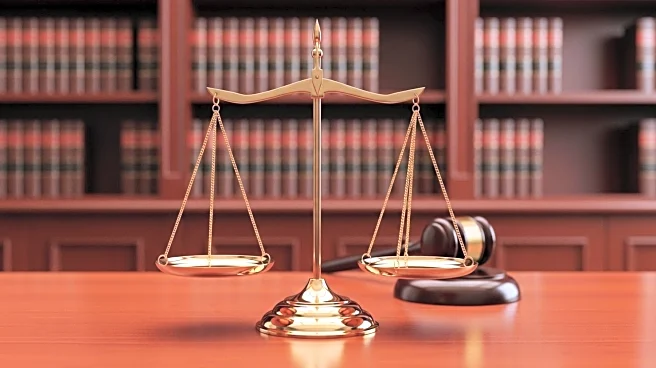What's Happening?
President Donald Trump is preparing to file a lawsuit challenging the Senate's 'blue slip' tradition, which allows senators to block federal appointees within their states, including judges and US attorneys. Legal experts predict that Trump's case will face significant hurdles due to established case law that protects congressional rules from judicial interference. The Constitution grants each House the authority to set its own rules, and past court rulings have upheld this principle, making it unlikely for Trump's lawsuit to succeed. The blue slip practice has been a Senate tradition for over a century, and while it was eliminated for appellate court picks during Trump's first administration, it remains in place for district court nominees.
Why It's Important?
The lawsuit represents a significant challenge to the separation of powers and established norms within the U.S. government. If successful, it could alter the balance of power between the executive and legislative branches, potentially allowing the President to bypass Senate procedures for appointing federal officials. This could have far-reaching implications for the judicial appointment process and the functioning of the Senate. However, legal experts suggest that the courts are unlikely to engage in what they perceive as a political controversy, thus maintaining the status quo. The outcome of this legal battle could impact future administrations and their ability to influence federal appointments.
What's Next?
If the lawsuit proceeds, the Senate Legal Counsel or the Justice Department is expected to represent the Senate in court. The Senate typically passes resolutions to authorize its legal counsel to act in court, and bipartisan leadership can sign off on their actions. The legal battle could create tension between the executive and legislative branches, with potential implications for Trump's allies and the broader political landscape. The administration's previous legal challenges against the Democratic-controlled House and other judicial rulings suggest a pattern of litigation that may continue.
Beyond the Headlines
The lawsuit highlights President Trump's ongoing efforts to consolidate power within the executive branch, challenging established norms and the separation of powers. This approach could lead to increased political polarization and debates over the limits of presidential authority. The legal challenge also underscores the importance of maintaining checks and balances within the U.S. government to ensure democratic governance.










